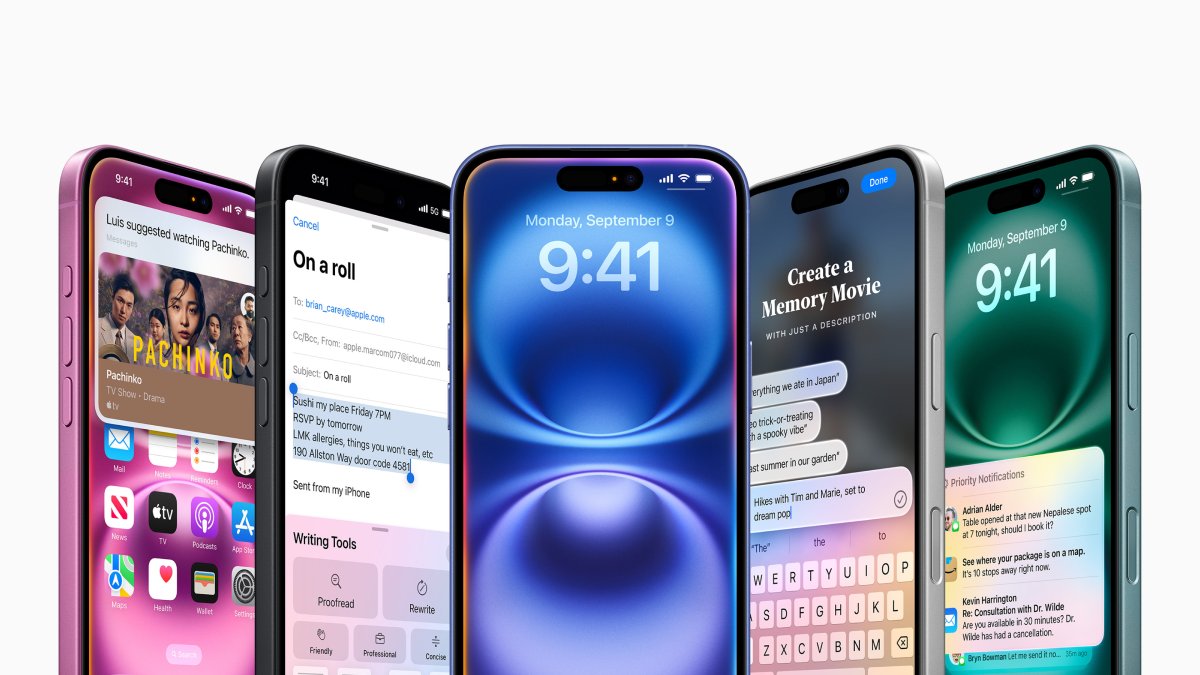Apple’s iPhone reached a record high in sales volume in the third quarter of 2024 despite challenges in the Asian market, specifically China and Indonesia.
Market analysis firm Canalys reported that Apple achieved its highest third-quarter sales volume ever, coming very close to leading the global smartphone market for Q3. Apple and Samsung are both at an 18 percent market share, with Samsung narrowly defending its top position.
This is significant as Samsung launched its latest smartphones in July, while Apple’s iPhone 16 range only went on sale September 13. Canalys analysts believe the continued demand for the iPhone 15 played a key role in this achievement.
“The ongoing strong demand for the iPhone 15 series, along with Apple’s legacy models, played a crucial role in its Q3 performance,” said Runar Bjørhovde, analyst at Canalys.
“The market’s shift towards premium devices, intersected by an ongoing refresh cycle of devices bought during the pandemic, is benefiting Apple, particularly in its strong-hold regions such as North America and Europe,” he added.
Newsweek has reached out to Apple via email for comment.
The Canalys analyst also said that, as the smartphone’s baked-in AI assistant Apple Intelligence continues to expand into new markets and support additional languages, this should, “despite a modest initial reception” help Apple “maintain a strong finish to 2024 and help momentum in H1 2025.”
Despite the sales record, the iPhone is currently facing issues in Asia. In China, the company’s smartphone sales have dropped significantly due to factors including a reported state ban on iPhones in government offices across the country, and increased competition from domestic brands like Huawei.
Apple is also facing a potential ban on the iPhone 16 in Indonesia. This is due to the company’s failure to renew certain certifications and meet agreed investment commitments in the country.
On October 8, Indonesia’s Industry Minister Agus Gumiwang Kartasasmita confirmed that the iPhone 16 will not be available for sale in Indonesia until Apple meets investment obligations and renews its certification for local content, known as TKDN.

The new iPhone 16 showing the range of Apple Intelligence features. Record Q3 iPhone sales in 2024 are attributed in part to strong demand for the iPhone 15 and other legacy models rather than the launch of the iPhone 16 alone.
Apple Inc.
“Apple’s iPhone 16 cannot be sold yet in Indonesia as the extension of the TKDN certification is still pending, awaiting further investment realization from Apple,” Agus said during a media briefing in Jakarta.
Agus said that Apple previously obtained the necessary certification, which allowed its products to be sold in the country. However, that certification has since expired and must be renewed.
The situation in China is further complicated by the country’s ban on OpenAI‘s ChatGPT, the AI technology Apple has integrated into Siri alongside its own Apple Intelligence. This has forced Apple to search for a Chinese AI company to partner with, a move that is crucial for the company’s success in this market.
In 2023, Apple recorded $73 billion in sales from the Greater China region, which accounted for 19 percent of the company’s total sales. This represents a slight decline of 2 percent year-over-year.
In contrast, Indonesia is part of the broader Asia Pacific region, which saw total sales of $30 billion, up by 1 percent year-on-year. These figures point to the importance of China in Apple’s overall sales, while Indonesia contributes to the broader Asia-Pacific market.
Apple Intelligence, which was a key highlight at its annual developer’s conference where new products and features are announced annually, offers advanced AI-powered features such as text summarization, transcription, and custom Genmoji creation.
Outside of Asia, Apple’s decision to delay the launch of its Apple Intelligence platform in the European Union due to regulatory concerns could also have ramifications for its 2024 sales. The primary obstacle is the EU’s Digital Markets Act (DMA), which imposes strict rules on tech companies, particularly those deemed “gatekeepers” like Apple.
The DMA mandates interoperability across devices and platforms, aiming to prevent monopolistic practices. Apple has expressed concerns that meeting these requirements would compromise user privacy and product security, leading to its decision to withhold Apple Intelligence in the EU throughout 2024.
The lack of access to these features could lead to dissatisfaction among consumers, especially as these technologies are rolled out elsewhere, notably in the U.S. and other non-EU regions.
Consumers on X (formerly Twitter) have been expressing dissatisfaction with the situation with @RjeyTech saying, “If I lived in the EU I wouldn’t even consider a new iPhone.. What’s the point? No apple intelligence. So many better options on the android side.”
Another X user @pjah91 said, “Disappointed that the Digital Markets Act #DMA blocks access to Apple Intelligence in the EU. While I’m not a fan of gatekeepers, I get @Apple’s privacy and security concerns.”
Given that Europe represents almost a quarter of Apple’s global sales, with $94.3 billion in revenue from the region in 2023, this regulatory blockade could affect Apple’s growth.









